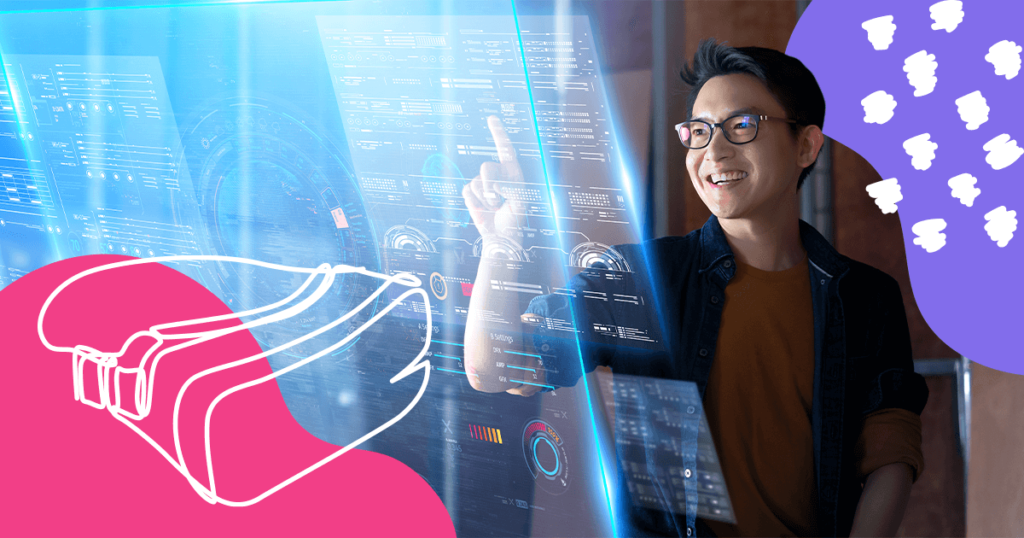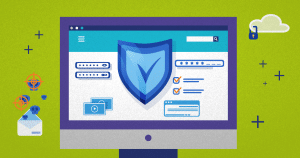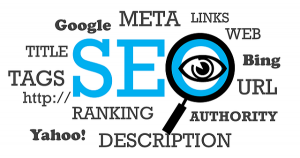ChatGPT has taken the world by storm, and it’s not hard to see why. It can drastically change the way we search for information, consume news, read and write reports, and much more.
In this post, you’ll learn:
Download this post by entering your email below
What Is ChatGPT?
Most of us are used to Google Snippets. They’re convenient blurbs that give us fast answers to questions we type online. ChatGPT is similar, but far more powerful. Instead of just a few sentences, it can provide long, in-depth answers to just about any question.
ChatGPT is an AI-powered tool. It was developed by OpenAI, and the basic version can be used free of charge. There is also a premium version with extra features that costs $20 per month.
Google has created a similar tool known as Bard. However, there are some important differences between the two programs. Bard is designed to check the internet in real-time and provide up-to-date answers. It is especially useful for those who need a quick fact-check or the answer to a question.
ChatGPT, on the other hand, only uses information that was created until the end of 2021. This means that its answers to current events questions won’t be as accurate as Bard’s. On the other hand, ChatGPT provides more in-depth answers. It is ideal for those who need text-based reports or even articles on a particular topic.
Why Is ChatGPT So Controversial?
While ChatGPT is a form of artificial intelligence, it can’t really think for itself. Rather, it operates using algorithms designed by its creator.
OpenAI has gone to great lengths to ensure ChatGPT is a neutral tool. Unfortunately, bias in ChatGPT remains a very real problem. Like all forms of artificial intelligence, ChatGPT has its limitations.
Furthermore, the fact that OpenAI wants to allow ChatGPT users to customize the chatbot’s behavior, within certain limitations, is cause for concern. This could introduce user bias into the program, making it untrustworthy or even downright malicious.
There are also ethical issues involving ChatGPT. Educational institutions are concerned that students may rely on it to do their homework.
After all, instead of writing an essay or report on your own, it’s far simpler to have an algorithm do it for you. What’s more, a document authored by ChatGPT is likely to have better spelling, grammar, and accuracy than one written by the average student.
There is also concern that journalists may rely too heavily on this tool to generate news content. The ChatGPT bias could cause them to disseminate misinformation, which is already a serious problem on the internet.
While there is no easy solution to the problems outlined above, understanding how ChatGPT works can help you learn to recognize its inherent biases and deal with them.
What Is Bias in a Natural Language Processing Model (NLP)?
The natural language processing model is a huge step forward for artificial intelligence. It enables ChatGPT and other tools to process language in the same way that humans do.
This is what makes it possible for ChatGPT to write articles and blog posts that don’t sound like they were written by a machine.
Unfortunately, the natural language processing model is inherently biased because it receives its information from human sources that are, for the most part, inherently biased.
The way in which the system is designed also introduces inherent biases that could cause the program to provide incomplete or inaccurate information.
Examples of Bias in ChatGPT
The natural language processing model used by ChatGPT has a problem with gender and racial biases. Amazon discovered this when it used an NLP tool to review resumes from job applicants.
The tool used linguistic patterns from past resumes to screen current candidates and identify the best applicants. However, since women were underrepresented in the past, the program was inadvertently biased toward male candidates.
Additionally, a study based on an analysis of 800 billion words on the internet found that certain groups were more likely to be associated with negative words than others.
This was particularly true of the African-American ethnic group. There was also a clear bias against senior citizens and people with disabilities. As ChatGPT gets its information from the web, it could easily reflect these biases, especially if a person is intentionally trying to get the program to spout misinformation.
Some have accused ChatGPT of a political bias against conservatives. When the New York Post asked ChatGPT to write a journalistic article in the style of the New York Post, the program refused.
It stated that it does not generate inflammatory, biased content. However, when asked to write a journalistic article in the style of CNN, the program complied with no issues.
The New York Post also alleges that ChatGPT is more likely to flag negative comments about some people than others. “Protected” people include liberals, women, gays, and African-Americans.
In one instance, when ChatGPT answered a negative question about men and women, only the negative question about women was flagged. However, ChatGPT did give the same answer to both questions.
How Bias in ChatGPT Leads to Harmful Outcomes
About 22 percent of students use ChatGPT at least once each week. This number will likely grow in the coming years. Any bias in ChatGPT will give children and young people a biased, inaccurate view of the world.
ChatGPT can also amplify misinformation about certain groups of people. This is done not only by providing false information but also incomplete information.
For instance, researchers who asked the program about the war in Ukraine found that it did not provide context regarding how the war started.
As seen above, ChatGPT can also negatively impact hiring practices. This is particularly true if a company is relying too heavily on AI. Thankfully, as we’ll see below, this problem can be mitigated.
What Is the Root Cause of Bias in ChatGPT?
Some people have blamed ChatGPT’s programmers for the chatbot’s bias. They note that programmers design the algorithms that the program uses and can introduce their own inherent biases into the process.
However, the root cause of the problem is likely much more complex. “The Bias in the Machine” by MIT Technology Review points out that AI’s data source is what causes a lot of racial disparities.
The article, which focuses on facial recognition technologies, explained that this technology often misidentifies African-American suspects because the database does not have enough sample data on African-American individuals.
ChatGPT gets its information from human content. The programmers have tried to ensure that all content sources are authoritative.
Unfortunately, humans aren’t perfect and even people with the best intentions have inherent biases. Furthermore, some forms of content do not contain enough information or nuance.
This is something users will have to watch out for when using ChatGPT.

Measuring, Detecting, and Reducing Bias in ChatGPT
ChatGPT is a relatively new tool. It will likely take time to reduce the chatbot’s inherent bias. However, there are things that can be done to measure, detect, and decrease its bias:
- Careful research is always in order. One should never rely solely on ChatGPT when making important decisions. Use counterfactual examples to better understand a situation or answer.
- Many people are calling on OpenAI to reveal the complex algorithm that ChatGPT uses to provide information. This would help users understand how the program works and, more importantly, how it provides answers to complex questions.
- ChatGPT is under investigation for using sensitive private data. Bear this in mind when using the program because it will affect the answers you receive. While personal data may help the program provide accurate answers, it can also infringe on users’ rights. Furthermore, it can amplify misinformation about certain groups.
Government officials in the United States and Europe are thinking about regulating not only ChatGPT but all AI technology.
Doing so would likely have both advantages and drawbacks. If you are concerned about the spread of information (and misinformation), you’ll want to stay abreast of developments in this arena.
How have users successfully addressed bias in ChatGPT?
Professional recruiter Jasmine Cheng provides a good example of how to address the ChatGPT bias. She uses the program all the time and says it saves her about 10 hours of work per week.
However, she also sets clear parameters for ChatGPT. Furthermore, she always checks the accuracy of each piece of information provided by the chatbot.
Microsoft Regional Director Oleksandr Krakovetskyi offers additional suggestions.
He explains that companies using ChatGPT should use gender-neutral job descriptions, remove words associated with a particular gender, and focus on educational qualifications.
The Future of Bias in ChatGPT
ChatGPT is an AI-powered tool and will always have limitations. It gets its information from human sources, and human sources will always have some inherent biases.
However, biases can be minimized and mitigated over time as governments, activists, and developers work together to improve ChatGPT and other similar programs.
Now What?
It’s best not to rely only on AI-generated content for your business needs.
AI is useful to help you find content creation ideas, personalize marketing, and predict customer behavior. However, only a human has the skills to conduct nuanced research, fact-check work, and create unique unbiased content to meet your needs.
WriterAccess offers access to tens of thousands of vetted, experienced freelance writers, editors, and designers.
This managed online marketplace also provides AI tools and assistance you need to find the right person for any job.
Check out our 14-day free trial to see how we can help you create the winning content you need to build your online reputation and boost your business.

![[ROCK NA] [EBOOK SEO] Complete Guide](https://rockcontent.com/wp-content/uploads/2024/06/banner_Search-Engine-Optimization.png)






